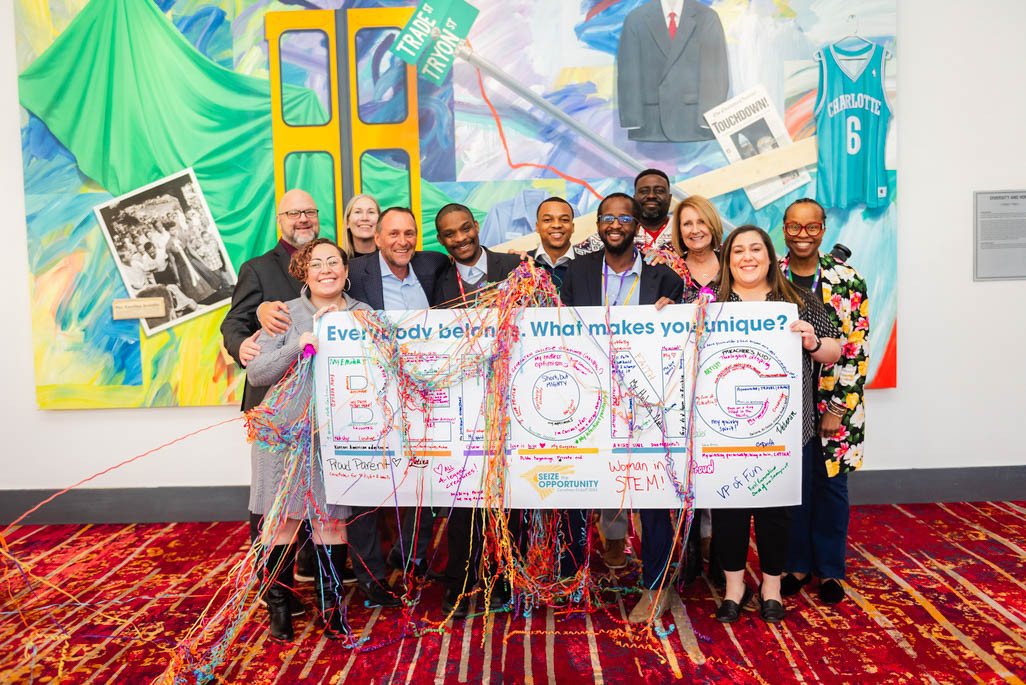Best Workplaces, Compensation, Equity, Sharing
Here’s how this award-winning workplace built a compensation strategy to compete in an increasingly complicated business environment.
What do employees consider “fair” when looking at compensation? For HR leaders today, offering a competitive package requires a more comprehensive approach than in years past.
“When I began my career in HR, it used to be enough to just pay really well, or have a cool culture,” says Lori Hall, director of human resources at Kimley-Horn.
Not anymore.
“You have to provide meaningful work experiences; you have to be willing to train and develop employees; you have to be cool and fun,” she says. “You have to do it all.”
Kimley-Horn knows a thing or two about creating a winning workplace culture.
The engineering consulting firm with more than 7,500 employees was No. 30 on the Fortune 100 Best Companies to Work For® List in 2024 and the No. 38 large company on the Fortune Best Workplaces for Women™.
What helps the consulting firm based in North Carolina be so competitive against the best workplaces in the country?
To start, they have a robust and thoughtful approach to compensation that ensures nine in 10 employees (91%) say they are paid fairly. To understand how impressive that number is, consider that the average across companies on the 100 Best list in 2024 is only 75%.
Learn strategies from other great workplaces at the For All Summit™ April 8-10 in Las Vegas!
What does ‘fair pay’ look like?
Kimley-Horn’s approach to compensation is guided by two principles, Hall says.
“First, we want people to live comfortably,” she explains. That means ensuring employees can retire when they want to retire and have the means to live a full life here and now.
The second principle: being competitive when offering total compensation. “We want to be fair in our base compensation,” Hall says. “We have a really robust retirement plan. We have a really robust incentive compensation plan, and we have a bunch of extras from profit-sharing contributions to our renown red envelope days.”
To ensure that this plan is fair and competitive, Kimley-Horn has been willing to make changes and bring in external expertise when necessary. As its workforce has become more specialized and complex, compensation has had to adapt.
“For a really long time, we were predominantly civil engineers,” Hall says. “Now we have civil engineers, planners, electrical engineers, mechanical engineers, people with history backgrounds, people who do forensics.”
This diverse workforce has required the company to get more sophisticated in its compensation strategy.
Different employes have different needs
What does it look like to meet the diverse needs of different generations in the workforce, for example?
Recent college grads, for example, have different needs than more established professionals with a bigger collection of assets. “They’re buying a car; they’re finding an apartment; they’re building their professional lives and their personal lives at the same time,’” Hall says. “Salary is very important to them, whereas if you’ve been around for a long time, you have more of a long-term perspective.”
To address this difference, Kimley-Horn has thoughtfully considered how to prioritize salary in the total compensation package for younger employees. The package is rebalanced over time to focus on retirement or incentive opportunities for later-career professionals.
How to build trust in compensation philosophy
It’s not enough to have a competitive total compensation package. You also must communicate thoughtfully and meaningfully with employees about their pay and your compensation philosophy.
“We talk about it regularly,” says Hall. As a built-in component of several company-wide training programs, employees can ask leaders direct questions about pay and bonus structures.
The team also regularly collects feedback from employees in exit interviews, stay interviews, and career check-ins.
To ensure equity across the company, there are formalized review layers around salary and bonus awards. Regional HR teams review a master list of all salaries in each region where the company operates and, working with the company’s affirmative action officer, the team analyzes pay parity by gender and minority status. If disparities are found, corrections are made.
For bonus awards there are four levels of review, from direct manager up to a companywide analysis, to ensure that what can feel like a subjective judgment has met rigorous standards. The process, which Kimley-Horn completes twice a year for its two separate bonus windows, takes two months.
Tips for others
How might this approach adapt to other companies? Hall and Kimley-Horn offer four lessons:
1. Don’t be afraid to ask for help
Hall says the need to bring in external experts and resources to inform their decision-making became undeniable after one annual review process four years ago.
“I felt like we were just not as sharp as we needed to be,” she says. “We needed to go ask someone who knows what they’re doing for help.”
The team has gone on to engage another consultancy for additional perspective and continues to try and learn more from others.
2. Lean on your survey tools
The Great Place To Work® Trust Index™ Survey offers invaluable data for understanding the employee experience, Hall says.
The team brings together survey data with other key metrics like turnover, as well as stay interview and exit interview data to develop guidance for senior leaders to make big decisions.
3. When making change, double down on transparency
“We probably err on the side of over-communicating when something different is going on,” Hall says.
When consultants were brought in to analyze and provide guidance on Kimley-Horn’s compensation philosophy, the team was careful to communicate the “why” behind the changes it made.
“When people understand the why, even if they don’t love all of it, they understand its importance to the business and to them, they’re better able to move on,” Hall says.
4. Don’t expect perfection
When making changes to the employee experience, whether its compensation or something else, it’s crucial to continue to listen to employees.
“It’s not all going to go perfectly,” Hall says. “We’ve actively solicited feedback from lots of people around the company to say: ‘What's working? What's not?’”
When you can admit that you don’t have all the answers, but show your effort to engage on hard topics, that builds trust.
“We want feedback and we’re willing to do what we need to do to get better,” Hall says.
Get recognized for your culture
Gain accolades for your workplace environment and attract top talent who share your values.







